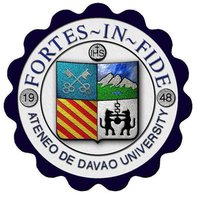
DAVAO CITY (Mindanao Examiner / Feb. 13, 2012) – Students from the Ateneo de Davao University in Davao City in the southern Philippines staged a candle-lighting protest against a proposed 6% hike in tuition and energy fees for the incoming school year.
The protest, led by Buklurang Atenista (BuklAt) Coalition, called for a genuine and democratic consultation with students on the proposed increase.
Ateneo administration officials held a multi-sectoral consultation for the planned hike in tuition and energy fees on January 25, but the protesters said only a few students attended the event.
“It was not really a consultation. It was more of a presentation of their proposed increase. Only less than ten students were present. What we call for is a public consultation that may be initiated by either the current student council or the administration because majority of the university’s seven to eight thousand students have not yet been informed and consulted.”
“What we understand about consultation is that it is a tool in decision making that aims to get the consensus of the parties involved. There is no consensus in less than ten students,” said Ateneo student council president Maureene Ann Villamor, who also joined the protest.
Higher Education Institutions such as Ateneo de Davao are mandated to follow Commission on Higher Education Memorandum Order No. 13 (series of 1998) in conducting consultations prior to increase in tuition. The memorandum order stipulated that students may be represented by not more than ten during consultations.
“The memorandum of CHED is itself faulty and encourages an undemocratic process. It simply hastens HEIs profit-orientedness by allowing them to increase tuition so long as there has been a meeting, otherwise called as consultation, with less than ten students and other stakeholders. Worse, there are no CHED officials observing how the consultation goes. CHED’s primary mandate is to regulate HEIs and not simply to approve proposals for increases in tuition,” Villamor said.
Moreover, the 6% increase in energy fee, according to Villamor, is questionable because the Ateneo administration said part of the increase will be used for the construction of the 18-storey community tower of the university.
“Why should we pay for something we have not yet used and we might not use because some of us might graduate before the building gets completed?” she asked.
The protesters said the Ateneo administration cannot simply use the projected inflation rate for the year as a basis for the increase because.
“It is still a projected value that may actually be higher or lower,” Villamor said.
She said that unless the university is really experiencing deficit, it cannot simply increase school fees. “And to know if the university has deficits, it has to show its latest, audited financial statement, a document that the Ateneo administration has not yet presented to the students.”
“We would also like to stress that we are not against the increase in the salary of the employees, where 80-85% of the tuition goes. What we want is a win-win solution where no sector is compromised in favor of another. In a non-stock, non-profit, and sectarian institution like Ateneo, we expect a more transparent financial record where we could probably discuss possible adjustment without necessarily hampering employees’ salary increase and without burdening students with tuition increase,” Villamor said.
The Buklurang Atenista, in a statement sent to Ateneo, said the students want to promote and uphold the principle that education is a right and not a commodity especially in these times of crisis. It said they do not intend to destroy the university and hinder its development as an institution that commits to nurture “persons for others.”
The students said they are now initiating a petition signing calling for genuine consultation on the proposed increase. There was no immediate statement from Ateneo de Davao about the allegations.
